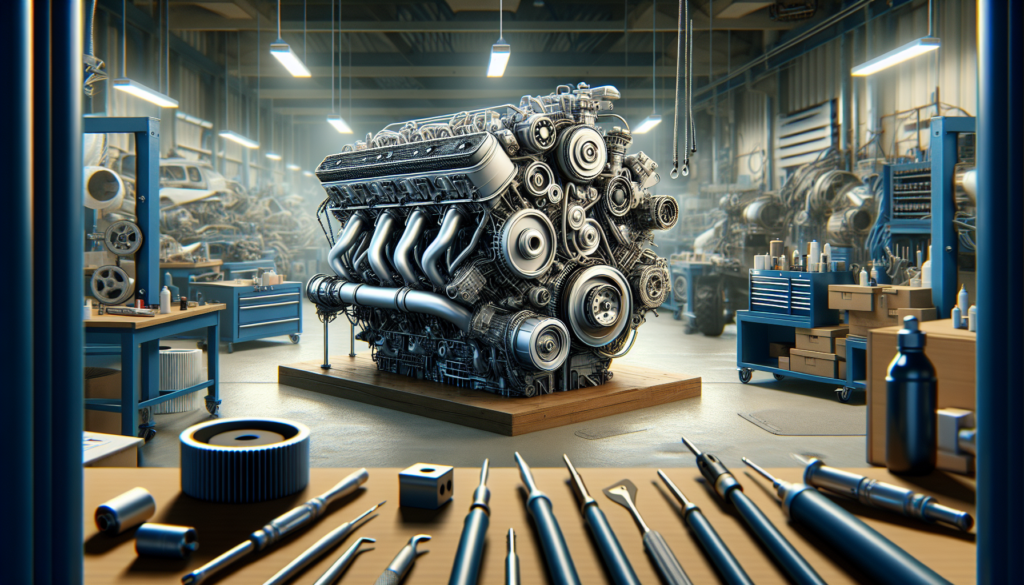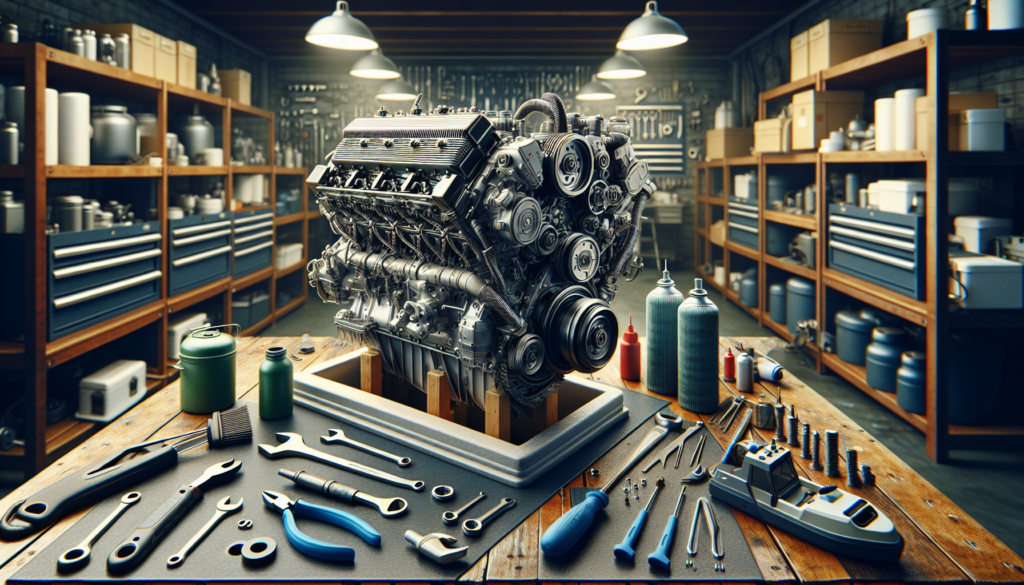Sailing across the serene sea in your luxurious yacht sounds like an ideal vacation, but did you know your boat’s engine plays a significant role in fuel efficiency? The motor might not be the most glamorous part of your boat, but it is undeniably the most critical component. This article will guide you on the essential boat engine maintenance tips for improved fuel efficiency-saving your money and keeping your boat running smoothly amidst the beautiful waves.
Understanding the Importance of Boat Engine Maintenance
As a boat owner, it’s crucial to understand the significance of regular engine maintenance. A well-maintained boat engine is the heart of a reliable, efficient, and long-lasting vessel. It ensures that your boat runs smoothly and efficiently, allowing you to enjoy your time on the water without the stress of engine failure or unexpected repairs.
Need for regular engine maintenance
Regular boat engine maintenance is essential to keep your vessel running at its peak. It optimizes performance, ensures safety, extends the lifespan of your engine, and significantly enhances your boating experience. Scheduled maintenance activities, such as oil changes, filter replacements, and cooling system checks, help prevent damage and detect issues early, saving you from repair costs and unplanned downtime.
How poor maintenance impacts fuel efficiency
Neglecting routine maintenance can adversely impact your boat’s fuel efficiency. Poorly maintained engines consume fuel at a higher rate, increasing your operating costs. They may result in various issues such as reduced throttle response, lower horsepower, and increased emission levels.
Economic advantages of well-maintained engines
A well-maintained engine isn’t just good for your boat’s performance; it’s also good for your wallet. Regular maintenance helps improve fuel consistency and efficiency, reducing the overall fuel cost. Additionally, it prevents costly repairs, significantly extending the life of your engine and increasing the resale value of your boat.
Types of Boat Engines and Their Specific Maintenance Needs
Not all boat engines are the same. There are different types, each with specific maintenance requirements.
Inboard engines care
Inboard engines, integral parts of the boat’s structure, need extra care. Their maintenance includes regular oil and filter changes, inspecting and cleaning the cooling system, and ensuring that the transmission system is correctly lubricated.
Outboard engines care
These engines are located outside the boat and hence need protection from the elements. Regular maintenance practices include flushing the engine after every use, checking the propeller for damage, and periodic fuel stabilizer use to keep the fuel from deteriorating during storage.
Diesel vs gasoline engines care
Diesel and gasoline engines require specific maintenance procedures. Diesel engines, known for their durability and efficiency, require routine oil changes, air filter checks, and cleaning of injectors. Gasoline engines, on the other hand, need regular spark plug checks, oil changes, and maintaining the right fuel-oil mix.

Routine Maintenance Tips for Improved Fuel Efficiency
Proper regular maintenance can lead to improved fuel efficiency. Here are some tips:
Regular fluid checks
Regularly checking and maintaining the right level of all fluids – oil, coolant, hydraulic fluid -can improve your boat’s fuel efficiency. Clean and adequately maintained fluids ensure the engine operates smoothly and efficiently.
Proper fuel selection
Using good quality fuel is important for fuel efficiency. Always use the recommended fuel type for your engine to avoid damages and maintain optimal performance.
Importance of frequent filter changes
Regularly changing fuel and oil filters can significantly improve your boat’s fuel economy. Dirty filters can block the flow of fuel and oil, causing your engine to work harder, resulting in high fuel consumption.
Advanced Boat Engine Maintenance Practices for Fuel Efficiency
For maximizing your boat’s fuel efficiency, you need to take engine maintenance to the next level.
Understanding engine tunes and adjustments
Keeping your boat tuned and the engine adjusted can dramatically enhance fuel efficiency. Regularly adjusting the engine timing, checking the compression and making necessary adjustments can ensure optimal performance and fuel economy.
Role of propeller condition and adjustment in fuel efficiency
The condition and adjustment of your boat’s propeller directly influence fuel efficiency. A propeller that’s damaged or incorrectly adjusted can cause extra strain on the engine, causing it to consume more fuel.
Impact of cooling system maintenance on fuel usage
Keeping the cooling system in top-notch condition is critical for fuel efficiency. A poorly maintained cooling system can lead to your engine running hot, which can bring down fuel efficiency and lead to serious damages.

Exploring Energy-Efficient Engine Technologies
With advancements in technology, there are new engine options that improve efficiency and reduce environmental impact.
Hybrid boat engines
Hybrid boat engines, which combine traditional combustion engines with electric power sources, use less fuel and emit fewer pollutants. They’re an environmentally friendly, efficient option for modern boating.
Electric boat engines
Electric engines, fueled by rechargeable batteries, are another green option. They’re not only almost silent but also are virtually emission-free and highly efficient, reducing the cost and environmental impact of boating.
Solar-powered boat engines
An increasingly popular choice for boat owners is solar-powered engines, which harness sun’s energy to power the engine. They have the advantage of low operating costs and zero emissions.
Maintaining the Fuel System for Optimal Efficiency
Proper maintenance of the fuel system is pivotal for improved fuel efficiency.
Dealing with common fuel system issues
Routine checks and prompt attention to common fuel system issues like leaks, clogs or dirty fuel injectors can prevent fuel wastage and boost engine efficiency.
Need for clean fuel tanks
Clean fuel tanks are integral to fuel efficiency. Contaminated or rusty tanks can lead to engine issues and reduced efficiency. Therefore, ensure your fuel tank is clean and corrosion-free.
Management of fuel lines and connections
Proper management of fuel lines and connections is critical for fuel efficiency. Loose connections or damaged fuel lines can lead to leaks, which not only waste fuel but can also be dangerous.
Seasonal Boat Engine Maintenance to Ensure Fuel Efficiency
Specific considerations should be made for each season to ensure your boat engine remains fuel efficient throughout the year.
Winterizing the boat engine
Before storing your boat for the winter, it’s crucial to winterize the engine appropriately to prevent corrosion, freezing damage, and fuel degradation.
Preparing the engine for boating season
Before you head out on the water for the season, thoroughly inspect your engine, check fluid levels, clean fuel filters, inspect fuel lines, and make sure the cooling system is functioning properly.
Off-season storage considerations
During off-season storage, boat engines require specific care to keep them in optimal condition. This includes regular start-ups to prevent stagnation, using fuel stabilizers to prevent fuel degradation, and keeping the engine clean and properly lubricated.
Effects of Boat Use on Engine Performance and Fuel Efficiency
How you use your boat also affects its engine performance and fuel efficiency.
Impact of high-speed usage on fuel consumption
Frequent high-speed usage can lead to increased fuel consumption. Operating your boat at a slower pace can help maintain engine efficiency and reduce your fuel expenses.
Balancing boat load for optimal performance
Overloading your boat can adversely affect engine performance and fuel efficiency. It’s worth noting that optimal load balancing promotes efficiency and extends engine life.
Navigational considerations for fuel efficiency
Simple navigational strategies, such as taking the shortest route or traveling at constant speeds, can help save fuel.
Dealing with Common Boat Engine Problems for Better Fuel Efficiency
Addressing common engine problems promptly can promote better fuel efficiency.
Addressing engine overheating
Engine overheating can harm fuel efficiency. Regular coolant checks, maintaining the right water pump pressure, and keeping the cooling system clean can help handle overheating issues.
Managing propulsion issues
Poor propulsion can directly influence fuel consumption. Ensure your boat’s propellers are in good shape and properly adjusted.
Fixing fuel leaks
Promptly addressing fuel leaks is critical for fuel efficiency. Regularly inspect fuel lines and connections for leaks, and fix them immediately.
The Role of Professional Inspection in Maintaining Boat Engine Efficiency
Professional inspections play a crucial role in maintaining boat engine efficiency.
When to schedule professional inspections
While you should be conducting regular checks yourself, getting a professional inspection at least once a year, or as recommended by the manufacturer, is crucial to catch any potential issues before they cause major problems.
Selecting a reliable service provider
Choosing a service provider with experience, appropriate qualifications, and a good reputation will ensure that your boat engine is in good hands.
Benefits of consistent professional maintenance
Consistent professional maintenance ensures that your boat engine operates optimally, saving you time, money, and ensuring a safe and enjoyable boating experience. It also reduces the risk of unexpected breakdowns or costly repairs, guaranteeing excellent resale value and longevity of your boat.
In conclusion, regular and proper boat engine maintenance is key to fuel efficiency. By understanding the importance of engine care, choosing the right fuel, engaging in seasonal checks, addressing common issues, and relying on professional services, you can significantly enhance your boat’s efficiency, save money on fuel, and enjoy a superior boating experience.


[…] conclusion, being proactive in Maintaining and Understanding Your Boat’s Engine can save you a lot of time, money, and headaches down the road. Happy […]
[…] boating experience. This compelling article will offer you a comprehensive guide on how to maintain your boat engine’s longevity and efficiency. So, instead of worrying about your engine failing in the middle of the lake, you’ll be able to […]
[…] performs at its peak. This piece will explore crucial areas, such as inspection, oil changes, fuel system checks, and battery maintenance. You’re guaranteed a smoother and safety-conscious voyage by […]
[…] Proper maintenance of your boat engine‘s electrical components is essential for reliable performance. Here are some key areas to focus on when it comes to electrical maintenance. […]